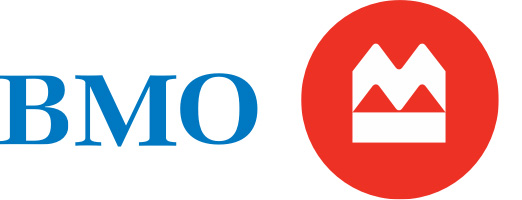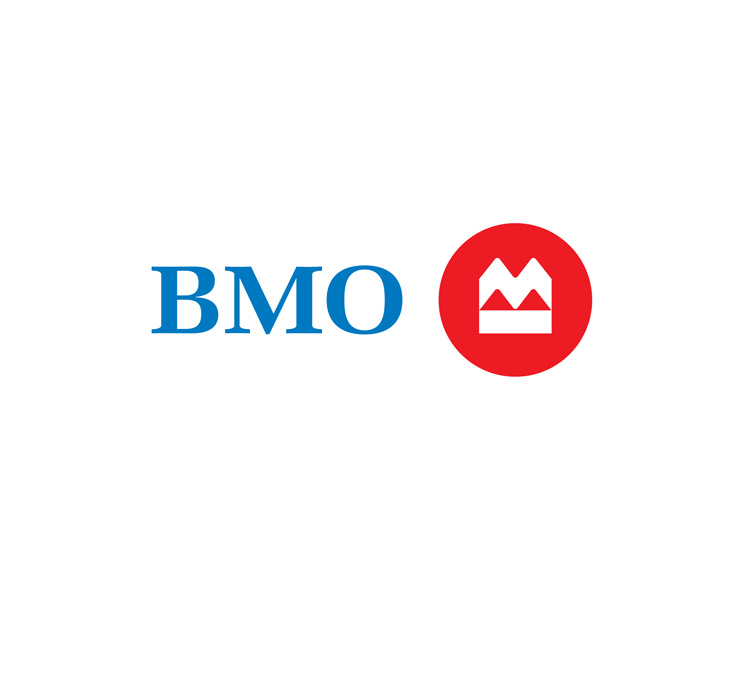
Investing in a Sustainable and Socially Responsible Way
-
bookmark
-
print



Like all of our actions these days, it’s important to consider the impact of what we do and say will have on the world around us — and this includes investing. There’s a movement among investors that continues to grow in popularity and that’s sustainable and socially responsible investing.
As investing is a key component of financial planning, you may want to consider more than the financial return when you’re deciding where to put your money.
Understanding responsible investing
When you invest responsibly, you often consider the financial return, as well as the social or environmental implications that come with it. The goal of your investment is to bring about positive change, which is often seen as improving human rights, promoting racial and gender diversity, furthering consumer protections, and combating environmental concerns.
Those who focus on these types of investments will also avoid companies that are believed to have a negative impact on society. These include industries like tobacco, gambling, and the development of weapons.
As Jennifer So, VP, Portfolio Manager, BMO Global Asset Management explains, “Responsible Investment (“RI”) is an umbrella term and there are multiple ways to invest. When you make a responsible investment, you might do so by excluding specific companies because of their products or behaviours, or selecting those that have positive Environment, Social, and Governance (“ESG”) attributes.” She says that, “You could alternatively invest with a theme in mind, and prioritize companies that offer sustainable solutions. If you prefer to take a philanthropic approach, you might primarily value non-financial outcomes, whereas an impact-driven approach targets both a financial and social or environmental return.”
Measuring responsible investments
ESG Integration: According to the Financial Times, ESG is “a generic term used in capital markets and used by investors to evaluate corporate behaviour and to determine the future financial performance of companies.”
Jennifer So points out that when you evaluate an investment on its ESG criteria, you’re not only analyzing a businesses finances. Rather, she says that, “In addition to traditional metrics, ESG integration also analyzes a company using Environment, Social, and Governance metrics. When considering the environment, that could mean an overview of its carbon emissions or water usage. An analysis of social metrics may include workforce management, along with an assessment of health and safety or employee turnover. Lastly, governance metrics involve an overview of how management is compensated and how effective a company’s board is.”
Sustainable Investing: So explains that “Sustainable opportunities go a step further and we look for companies whose products or services address a sustainability challenge.” She says that at BMO, “We use the UN Sustainable Development Goals (“SDGs”) as a qualitative guide to define what a sustainability challenge is. Next, we assess whether we can tie the company’s current or future revenue to this theme, or see if there’s an opportunity to reduce costs by improving its technology and using fewer resources. When there’s potential to increase revenue while lowering costs, it could translate into higher earnings per share in the long term.”
Ethical Investing: What makes an investment ethical is different for everyone as it depends on your personal views, values, and beliefs. Ethical investments tend to be more personal since they typically involve religious or political affiliations.
Choosing responsible investments
Companies with the environment at the forefront of their operations can be considered the fastest-growing area of sustainable investing. Overall, environmental factors are the most significant in North American investment portfolios. Green investing is considered a “mega-trend,” but based on its success it looks like environmentally sustainable investing might just become the norm. After all, most of us are trying to be more environmentally friendly by making better decisions to help the Earth and slow climate change.
When building a portfolio with this in mind, you could try putting money in funds dedicated to broad or more targeted themes, like renewable energy or clean water. Apart from environmental themes like these, investors may want to support women in leadership or fund positive community relations. There are many options to choose from, so it’s important to consider what causes you’d like to support before deciding.
The importance of responsible investing
Responsible investing is important for a variety of reasons. It’s one of the most effective ways to bring about change, and it’s also a source of opportunity. It’s key to improving society and promoting innovation. Financial investment is one of the most critical components in moving a project, industry, or innovation forward. By investing in companies that will improve society, you’re voting with your wallet and sending a message. In making ethical decisions this way, you can make a real impact on the world.
Responsible investing often requires you to consider the Environmental, Social, and Governance factors. In addition to helping investors back ethically-minded companies, an ESG analysis can be used to identify long-term risks, which might not be evident in financial statements alone. For example, an ESG analysis might show that a company’s physical assets are at risk due to a wildfire or a flood. It could also show that they have a poor corporate culture and have trouble both attaining and maintaining talent.
On the other side of this, ESG analysis can spot opportunities, too. Many sectors and industries are set to experience drastic change, and an ESG evaluation could highlight themes that are becoming more important to consumers, which tends to coincide with increased demand and Earnings Per Share (“EPS”) growth. This is already happening with renewable power, and is likely to impact other responsible investments.
Identifying responsible investors
According to Jennifer So, there’s a high interest in responsible investing across generations, however there’s a “particularly strong interest among women, millennials, and high net worth individuals.” She says that, “These groups have shown a prominent belief in the idea that companies can make a profit while also making a positive impact on the world. When they make purchasing decisions, they’re aware of the impact their wallets have.”
She says that issues like climate change and social justice resonate especially well with younger generations, and they’re likely to make a big impact by translating their awareness of these issues into responsible investments in the future. Because of this, “There’s a great opportunity for parents to start having discussions with their kids about personal finance so that they can set them on the right path, and give them better saving and investing habits.”
Risks
Responsible investing is still a relatively new concept, meaning that the data around it is still being gathered. As different investors define it in their own way, there’s a lot to consider when making an investment decision. While ESG integration can provide a more in-depth overview of a company, misleading information can sometimes veil the reality behind it. One example that So points out is greenwashing, which is a deceiving tactic used by companies to make them seem more environmentally conscious when they are not.
In addition to BMO’s podcasts and articles that break down these topics, you can also access trustworthy information from the Responsible Investment Association (“RIA”) in Canada.
Impacts
Investing in a company with ESG criteria can help keep them afloat. It can also give them the means to expand their reach and build their business. With the right funding from investors, businesses can create more programs that address global concerns. In 2018, Bank of America Merrill Lynch found that firms with better ESG investments were less likely to go bankrupt. The stocks were also less likely to decline in price (making them high-quality stocks), and they had higher returns over a three-year timespan.
So says that, “By regularly engaging with companies to articulate our views, we can encourage them to improve their ESG metrics. This could mean bringing more diversity to their board, or tracking and disclosing certain metrics. If we aren’t happy with the direction a company is moving in, we have the right to vote on specific issues at the Annual General Meeting (“AGM”) every year. This concept, called proxy voting, gives investors the opportunity to make changes to the board and influence positive change.”
If you’re considering sustainable and socially responsible investing, it’s probably because you care about the wellbeing of the world, and society as a whole. If you’re on the fence about whether responsible investing is for you, you just have to figure out what your priorities are — and hopefully, in addition to making money, you’d like to make a positive social impact. When we view investing through a multi-dimensional lens and put our money towards causes that we believe in, we allow companies to tackle problems in their own way — giving them the chance to be creative and harness technology so that they can find solutions.
Getting started
Since investors all have different risk profiles and consider responsible investments in their own ways, it’s important to have a clear understanding of your goals before you get started.
“To help you discover your ESG investor personality, we created a quiz called My ESG![]() that will help you to determine your next steps,” says So. “The quiz will tell you if you are ESG Motivated, ESG Ready, ESG Pragmatic, or ESG Skeptic. From there, you can decide if you are ready for an ESG-branded product, and whether or not it should make up the core part of your portfolio. If you’re not ready to take that step, just dipping your toe in the water or seeking out more information could be the best course of action for you.”
that will help you to determine your next steps,” says So. “The quiz will tell you if you are ESG Motivated, ESG Ready, ESG Pragmatic, or ESG Skeptic. From there, you can decide if you are ready for an ESG-branded product, and whether or not it should make up the core part of your portfolio. If you’re not ready to take that step, just dipping your toe in the water or seeking out more information could be the best course of action for you.”
If you want to invest responsibly, you need to look for investments that match your personal values. It can be hard and time-consuming to do all the research on your own, so consider working with a BMO financial professional. They can help you establish your investor profile and come up with a roster of companies to invest in. Our approach to responsible investing has helped create solutions and funds around the world — so you’re in good hands.
BMO also offers an automatic and convenient BMO Balanced ESG exchange-traded fund that combines several of our ESG ETFs into an “all-in-one” fund (60 percent into equities, 40 percent into fixed-income assets) that rebalances once every quarter. The BMO Balanced ESG EFT (“ZESG”) is a great, low-cost way to invest responsibly as it does not ask clients to pay a management fee.
BMO Private Wealth provides this publication for informational purposes only and it is not and should not be construed as professional advice to any individual. The information contained in this publication is based on material believed to be reliable at the time of publication, but BMO Private Wealth cannot guarantee the information is accurate or complete. Individuals should contact their BMO representative for professional advice regarding their personal circumstances and/or financial position. The comments included in this publication are not intended to be a definitive analysis of tax applicability or trust and estates law. The comments are general in nature and professional advice regarding an individual’s particular tax position should be obtained in respect of any person’s specific circumstances.
All rights are reserved. No part of this publication may be reproduced in any form, or referred to in any other publication, without the express written permission of BMO Private Wealth.
Any statement that necessarily depends on future events may be a forward-looking statement. Forward-looking statements are not guarantees of performance. They involve risks, uncertainties and assumptions. Although such statements are based on assumptions that are believed to be reasonable, there can be no assurance that actual results will not differ materially from expectations. Investors are cautioned not to rely unduly on any forward-looking statements. In connection with any forward-looking statements, investors should carefully consider the areas of risk described in the most recent simplified prospectus.
The viewpoints expressed by the authors represents their assessment of the markets at the time of publication. Those views are subject to change without notice at any time without any kind of notice. The information provided herein does not constitute a solicitation of an offer to buy, or an offer to sell securities nor should the information be relied upon as investment advice. Past performance is no guarantee of future results. The statistics in this update are based on information believed to be reliable but not guaranteed. This communication is intended for informational purposes only.
This article is for information purposes. The information contained herein is not, and should not be construed as, investment, tax or legal advice to any party. Investments should be evaluated relative to the individual’s investment objectives and professional advice should be obtained with respect to any circumstance.
The BMO ETFs or securities referred to herein are not sponsored, endorsed or promoted by MSCI Inc. (“MSCI”), and MSCI bears no liability with respect to any such BMO ETFs or securities or any index on which such BMO ETFs or securities are based. The prospectus of the BMO ETFs contains a more detailed description of the limited rela- tionship MSCI has with BMO Asset Management Inc. and any related BMO ETFs.
Commissions, management fees and expenses all may be associated with investments in exchange traded funds. Please read the ETF Facts or prospectus before investing. The indicated rates of return are the historical annual compounded total returns including changes in unit value and reinvestment of all dividends or distributions and do not take into account sales, redemption, distribution or optional charges or income taxes payable by any unitholder that would have reduced returns. Exchange traded funds are not guaranteed, their values change frequently and past performance may not be repeated.
For a summary of the risks of an investment in the BMO ETFs, please see the specific risks set out in the prospectus. BMO ETFs trade like stocks, fluctuate in market value and may trade at a discount to their net asset value, which may increase the risk of loss. Distributions are not guaranteed and are subject to change and/or elimination.
BMO ETFs are managed by BMO Asset Management Inc., which is an investment fund manager and a portfolio manager, and a separate legal entity from Bank of Montreal.
Like all of our actions these days, it’s important to consider the impact of what we do and say will have on the world around us — and this includes investing. There’s a movement among investors that continues to grow in popularity and that’s sustainable and socially responsible investing.
As investing is a key component of financial planning, you may want to consider more than the financial return when you’re deciding where to put your money.
Understanding responsible investing
When you invest responsibly, you often consider the financial return, as well as the social or environmental implications that come with it. The goal of your investment is to bring about positive change, which is often seen as improving human rights, promoting racial and gender diversity, furthering consumer protections, and combating environmental concerns.
Those who focus on these types of investments will also avoid companies that are believed to have a negative impact on society. These include industries like tobacco, gambling, and the development of weapons.
As Jennifer So, VP, Portfolio Manager, BMO Global Asset Management explains, “Responsible Investment (“RI”) is an umbrella term and there are multiple ways to invest. When you make a responsible investment, you might do so by excluding specific companies because of their products or behaviours, or selecting those that have positive Environment, Social, and Governance (“ESG”) attributes.” She says that, “You could alternatively invest with a theme in mind, and prioritize companies that offer sustainable solutions. If you prefer to take a philanthropic approach, you might primarily value non-financial outcomes, whereas an impact-driven approach targets both a financial and social or environmental return.”
Measuring responsible investments
ESG Integration: According to the Financial Times, ESG is “a generic term used in capital markets and used by investors to evaluate corporate behaviour and to determine the future financial performance of companies.”
Jennifer So points out that when you evaluate an investment on its ESG criteria, you’re not only analyzing a businesses finances. Rather, she says that, “In addition to traditional metrics, ESG integration also analyzes a company using Environment, Social, and Governance metrics. When considering the environment, that could mean an overview of its carbon emissions or water usage. An analysis of social metrics may include workforce management, along with an assessment of health and safety or employee turnover. Lastly, governance metrics involve an overview of how management is compensated and how effective a company’s board is.”
Sustainable Investing: So explains that “Sustainable opportunities go a step further and we look for companies whose products or services address a sustainability challenge.” She says that at BMO, “We use the UN Sustainable Development Goals (“SDGs”) as a qualitative guide to define what a sustainability challenge is. Next, we assess whether we can tie the company’s current or future revenue to this theme, or see if there’s an opportunity to reduce costs by improving its technology and using fewer resources. When there’s potential to increase revenue while lowering costs, it could translate into higher earnings per share in the long term.”
Ethical Investing: What makes an investment ethical is different for everyone as it depends on your personal views, values, and beliefs. Ethical investments tend to be more personal since they typically involve religious or political affiliations.
Choosing responsible investments
Companies with the environment at the forefront of their operations can be considered the fastest-growing area of sustainable investing. Overall, environmental factors are the most significant in North American investment portfolios. Green investing is considered a “mega-trend,” but based on its success it looks like environmentally sustainable investing might just become the norm. After all, most of us are trying to be more environmentally friendly by making better decisions to help the Earth and slow climate change.
When building a portfolio with this in mind, you could try putting money in funds dedicated to broad or more targeted themes, like renewable energy or clean water. Apart from environmental themes like these, investors may want to support women in leadership or fund positive community relations. There are many options to choose from, so it’s important to consider what causes you’d like to support before deciding.
The importance of responsible investing
Responsible investing is important for a variety of reasons. It’s one of the most effective ways to bring about change, and it’s also a source of opportunity. It’s key to improving society and promoting innovation. Financial investment is one of the most critical components in moving a project, industry, or innovation forward. By investing in companies that will improve society, you’re voting with your wallet and sending a message. In making ethical decisions this way, you can make a real impact on the world.
Responsible investing often requires you to consider the Environmental, Social, and Governance factors. In addition to helping investors back ethically-minded companies, an ESG analysis can be used to identify long-term risks, which might not be evident in financial statements alone. For example, an ESG analysis might show that a company’s physical assets are at risk due to a wildfire or a flood. It could also show that they have a poor corporate culture and have trouble both attaining and maintaining talent.
On the other side of this, ESG analysis can spot opportunities, too. Many sectors and industries are set to experience drastic change, and an ESG evaluation could highlight themes that are becoming more important to consumers, which tends to coincide with increased demand and Earnings Per Share (“EPS”) growth. This is already happening with renewable power, and is likely to impact other responsible investments.
Identifying responsible investors
According to Jennifer So, there’s a high interest in responsible investing across generations, however there’s a “particularly strong interest among women, millennials, and high net worth individuals.” She says that, “These groups have shown a prominent belief in the idea that companies can make a profit while also making a positive impact on the world. When they make purchasing decisions, they’re aware of the impact their wallets have.”
She says that issues like climate change and social justice resonate especially well with younger generations, and they’re likely to make a big impact by translating their awareness of these issues into responsible investments in the future. Because of this, “There’s a great opportunity for parents to start having discussions with their kids about personal finance so that they can set them on the right path, and give them better saving and investing habits.”
Risks
Responsible investing is still a relatively new concept, meaning that the data around it is still being gathered. As different investors define it in their own way, there’s a lot to consider when making an investment decision. While ESG integration can provide a more in-depth overview of a company, misleading information can sometimes veil the reality behind it. One example that So points out is greenwashing, which is a deceiving tactic used by companies to make them seem more environmentally conscious when they are not.
In addition to BMO’s podcasts and articles that break down these topics, you can also access trustworthy information from the Responsible Investment Association (“RIA”) in Canada.
Impacts
Investing in a company with ESG criteria can help keep them afloat. It can also give them the means to expand their reach and build their business. With the right funding from investors, businesses can create more programs that address global concerns. In 2018, Bank of America Merrill Lynch found that firms with better ESG investments were less likely to go bankrupt. The stocks were also less likely to decline in price (making them high-quality stocks), and they had higher returns over a three-year timespan.
So says that, “By regularly engaging with companies to articulate our views, we can encourage them to improve their ESG metrics. This could mean bringing more diversity to their board, or tracking and disclosing certain metrics. If we aren’t happy with the direction a company is moving in, we have the right to vote on specific issues at the Annual General Meeting (“AGM”) every year. This concept, called proxy voting, gives investors the opportunity to make changes to the board and influence positive change.”
If you’re considering sustainable and socially responsible investing, it’s probably because you care about the wellbeing of the world, and society as a whole. If you’re on the fence about whether responsible investing is for you, you just have to figure out what your priorities are — and hopefully, in addition to making money, you’d like to make a positive social impact. When we view investing through a multi-dimensional lens and put our money towards causes that we believe in, we allow companies to tackle problems in their own way — giving them the chance to be creative and harness technology so that they can find solutions.
Getting started
Since investors all have different risk profiles and consider responsible investments in their own ways, it’s important to have a clear understanding of your goals before you get started.
“To help you discover your ESG investor personality, we created a quiz called My ESG![]() that will help you to determine your next steps,” says So. “The quiz will tell you if you are ESG Motivated, ESG Ready, ESG Pragmatic, or ESG Skeptic. From there, you can decide if you are ready for an ESG-branded product, and whether or not it should make up the core part of your portfolio. If you’re not ready to take that step, just dipping your toe in the water or seeking out more information could be the best course of action for you.”
that will help you to determine your next steps,” says So. “The quiz will tell you if you are ESG Motivated, ESG Ready, ESG Pragmatic, or ESG Skeptic. From there, you can decide if you are ready for an ESG-branded product, and whether or not it should make up the core part of your portfolio. If you’re not ready to take that step, just dipping your toe in the water or seeking out more information could be the best course of action for you.”
If you want to invest responsibly, you need to look for investments that match your personal values. It can be hard and time-consuming to do all the research on your own, so consider working with a BMO financial professional. They can help you establish your investor profile and come up with a roster of companies to invest in. Our approach to responsible investing has helped create solutions and funds around the world — so you’re in good hands.
BMO also offers an automatic and convenient BMO Balanced ESG exchange-traded fund that combines several of our ESG ETFs into an “all-in-one” fund (60 percent into equities, 40 percent into fixed-income assets) that rebalances once every quarter. The BMO Balanced ESG EFT (“ZESG”) is a great, low-cost way to invest responsibly as it does not ask clients to pay a management fee.
BMO Private Wealth provides this publication for informational purposes only and it is not and should not be construed as professional advice to any individual. The information contained in this publication is based on material believed to be reliable at the time of publication, but BMO Private Wealth cannot guarantee the information is accurate or complete. Individuals should contact their BMO representative for professional advice regarding their personal circumstances and/or financial position. The comments included in this publication are not intended to be a definitive analysis of tax applicability or trust and estates law. The comments are general in nature and professional advice regarding an individual’s particular tax position should be obtained in respect of any person’s specific circumstances.
All rights are reserved. No part of this publication may be reproduced in any form, or referred to in any other publication, without the express written permission of BMO Private Wealth.
Any statement that necessarily depends on future events may be a forward-looking statement. Forward-looking statements are not guarantees of performance. They involve risks, uncertainties and assumptions. Although such statements are based on assumptions that are believed to be reasonable, there can be no assurance that actual results will not differ materially from expectations. Investors are cautioned not to rely unduly on any forward-looking statements. In connection with any forward-looking statements, investors should carefully consider the areas of risk described in the most recent simplified prospectus.
The viewpoints expressed by the authors represents their assessment of the markets at the time of publication. Those views are subject to change without notice at any time without any kind of notice. The information provided herein does not constitute a solicitation of an offer to buy, or an offer to sell securities nor should the information be relied upon as investment advice. Past performance is no guarantee of future results. The statistics in this update are based on information believed to be reliable but not guaranteed. This communication is intended for informational purposes only.
This article is for information purposes. The information contained herein is not, and should not be construed as, investment, tax or legal advice to any party. Investments should be evaluated relative to the individual’s investment objectives and professional advice should be obtained with respect to any circumstance.
The BMO ETFs or securities referred to herein are not sponsored, endorsed or promoted by MSCI Inc. (“MSCI”), and MSCI bears no liability with respect to any such BMO ETFs or securities or any index on which such BMO ETFs or securities are based. The prospectus of the BMO ETFs contains a more detailed description of the limited rela- tionship MSCI has with BMO Asset Management Inc. and any related BMO ETFs.
Commissions, management fees and expenses all may be associated with investments in exchange traded funds. Please read the ETF Facts or prospectus before investing. The indicated rates of return are the historical annual compounded total returns including changes in unit value and reinvestment of all dividends or distributions and do not take into account sales, redemption, distribution or optional charges or income taxes payable by any unitholder that would have reduced returns. Exchange traded funds are not guaranteed, their values change frequently and past performance may not be repeated.
For a summary of the risks of an investment in the BMO ETFs, please see the specific risks set out in the prospectus. BMO ETFs trade like stocks, fluctuate in market value and may trade at a discount to their net asset value, which may increase the risk of loss. Distributions are not guaranteed and are subject to change and/or elimination.
BMO ETFs are managed by BMO Asset Management Inc., which is an investment fund manager and a portfolio manager, and a separate legal entity from Bank of Montreal.
Related Insights
Tell us three simple things to
customize your experience






Banking products are subject to approval and are provided in Canada by Bank of Montreal, a CDIC Member.
BMO Commercial Bank is a trade name used in Canada by Bank of Montreal, a CDIC member.
Please note important disclosures for content produced by BMO Capital Markets. BMO Capital Markets Regulatory | BMOCMC Fixed Income Commentary Disclosure | BMOCMC FICC Macro Strategy Commentary Disclosure | Research Disclosure Statements
BMO Capital Markets is a trade name used by BMO Financial Group for the wholesale banking businesses of Bank of Montreal, BMO Bank N.A. (member FDIC), Bank of Montreal Europe p.l.c., and Bank of Montreal (China) Co. Ltd, the institutional broker dealer business of BMO Capital Markets Corp. (Member FINRA and SIPC) and the agency broker dealer business of Clearpool Execution Services, LLC (Member FINRA and SIPC) in the U.S. , and the institutional broker dealer businesses of BMO Nesbitt Burns Inc. (Member Canadian Investment Regulatory Organization and Member Canadian Investor Protection Fund) in Canada and Asia, Bank of Montreal Europe p.l.c. (authorised and regulated by the Central Bank of Ireland) in Europe and BMO Capital Markets Limited (authorised and regulated by the Financial Conduct Authority) in the UK and Australia and carbon credit origination, sustainability advisory services and environmental solutions provided by Bank of Montreal, BMO Radicle Inc., and Carbon Farmers Australia Pty Ltd. (ACN 136 799 221 AFSL 430135) in Australia. "Nesbitt Burns" is a registered trademark of BMO Nesbitt Burns Inc, used under license. "BMO Capital Markets" is a trademark of Bank of Montreal, used under license. "BMO (M-Bar roundel symbol)" is a registered trademark of Bank of Montreal, used under license.
® Registered trademark of Bank of Montreal in the United States, Canada and elsewhere.
™ Trademark of Bank of Montreal in the United States and Canada.
The material contained in articles posted on this website is intended as a general market commentary. The opinions, estimates and projections, if any, contained in these articles are those of the authors and may differ from those of other BMO Commercial Bank employees and affiliates. BMO Commercial Bank endeavors to ensure that the contents have been compiled or derived from sources that it believes to be reliable and which it believes contain information and opinions which are accurate and complete. However, the authors and BMO Commercial Bank take no responsibility for any errors or omissions and do not guarantee their accuracy or completeness. These articles are for informational purposes only.
Bank of Montreal and its affiliates do not provide tax, legal or accounting advice. This material has been prepared for informational purposes only, and is not intended to provide, and should not be relied on for, tax, legal or accounting advice. You should consult your own tax, legal and accounting advisors before engaging in any transaction.
Third party web sites may have privacy and security policies different from BMO. Links to other web sites do not imply the endorsement or approval of such web sites. Please review the privacy and security policies of web sites reached through links from BMO web sites.
Please note important disclosures for content produced by BMO Capital Markets. BMO Capital Markets Regulatory | BMOCMC Fixed Income Commentary Disclosure | BMOCMC FICC Macro Strategy Commentary Disclosure | Research Disclosure Statements




